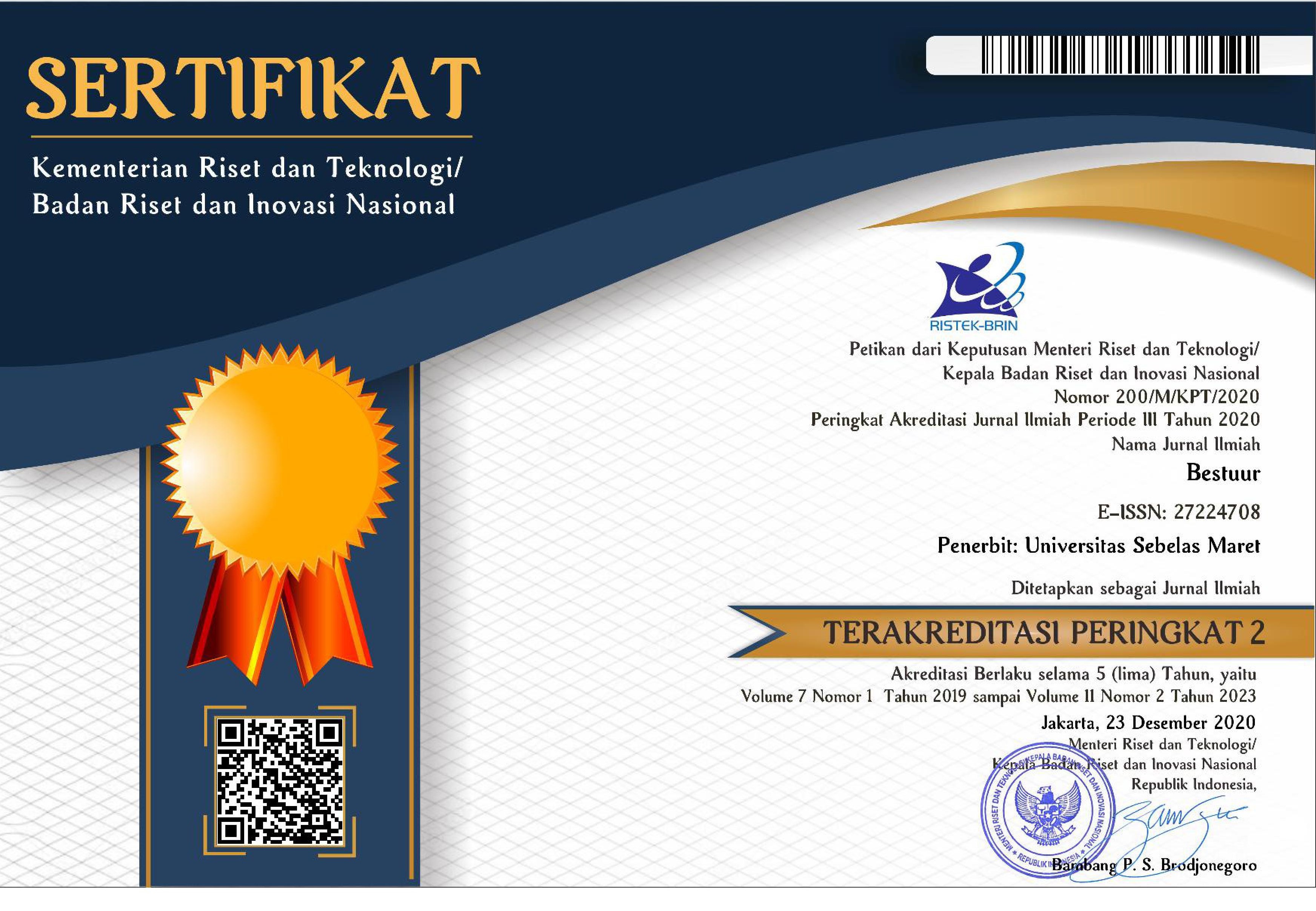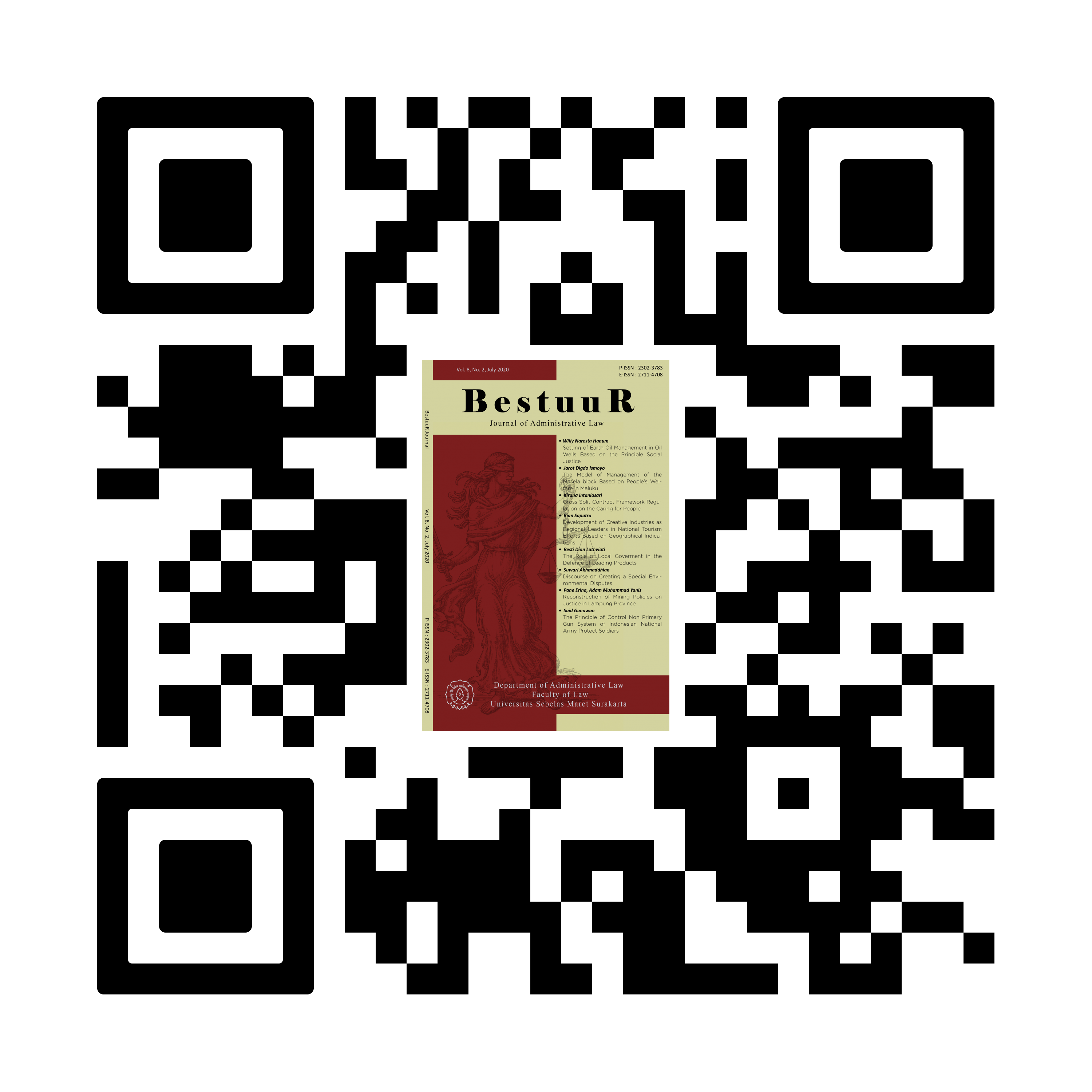The Alternative Concepts of Blasphemy Law in Indonesia: Legal Comparison with Ireland and Canada
Abstract
Indonesia has recognized and implemented blasphemy law within its legal system. Nevertheless, by many scholars, it is considered ambiguous and "no perimeter", which leads to the question of its legal certainty. Blasphemy is different across religions and legal systems, particularly in Ireland and Canada. This study seeks to examine how Indonesia, Ireland, and Canada rule blasphemy. To analyze information about the regulation of blasphemy in those countries, a comparative legal approach is utilized. The result of this study shows that blasphemy laws are heterogeneously written by the national legislation of Indonesia, Ireland, and Canada. Irish blasphemy law includes the element of mens rea, protect all religions in the country. Irish government clearly defines blasphemy law as a limitation of the freedom of expression. Canada does not regulate its blasphemy law strictly but use precedents to maintain the certainty and predictability. Mirroring to these two countries, Indonesian blasphemy law should be reconstructed into five ways: expanding the protected religions to include the minority religions, defining explicit limitations, specifying mens rea element, measuring the ‘threat to public’ elements, and more professional law enforcement officers.
Keywords
Full Text:
PDFReferences
Abraham, J., & Rufaedah, A. (2014). “Theologization” of psychology and “psychologization” of religion: How do psychology and religion supposedly contribute to prevent and overcome social conflicts? Procedia Environmental Sciences, 20, 516–525. https://doi.org/10.1016/j.proenv.2014.03.064
Ataullahjan, A., Mumtaz, Z., & Vallianatos, H. (2019). Family planning, Islam and sin: Understandings of moral actions in Khyber Pakhtunkhwa, Pakistan. Social Science & Medicine, 230, 49–56. https://doi.org/10.1016/j.socscimed.2019.03.011
Avgoustidis, A. G. (2013). Obsessions from the past: A study of the chapter on “blasphemous thoughts” in “The Ladder of Divine Ascent” (7th century AD). Asian Journal of Psychiatry, 6(6), 595–598. https://doi.org/10.1016/j.ajp.2013.08.072
Bogdanova, E. (2018). Obtaining redress for abuse of office in Russia: The Soviet legacy and the long road to administrative justice. Communist and Post-Communist Studies, 51(3), 273–284. https://doi.org/10.1016/j.postcomstud.2018.07.002
Bourchier, D. M. (2019). Two decades of ideological contestation in Indonesia: From democratic cosmopolitanism to religious nationalism. Journal of Contemporary Asia, 1–21. https://doi.org/10.1080/00472336.2019.1590620
Bruce, T. (2018). New technologies, continuing ideologies: Online reader comments as a support for media perspectives of minority religions. Discourse, Context & Media, 24, 53–75. https://doi.org/10.1016/j.dcm.2017.10.001
Castillo-Manzano, J. I., Castro-Nuño, M., López-Valpuesta, L., & Pedregal, D. J. (2019). From legislation to compliance: The power of traffic law enforcement for the case study of Spain. Transport Policy, 75, 1–9. https://doi.org/10.1016/j.tranpol.2018.12.009
Chrisendo, D., Krishna, V. V., Siregar, H., & Qaim, M. (2020). Land-use change, nutrition, and gender roles in Indonesian farm households. Forest Policy and Economics, 118, 102245. https://doi.org/10.1016/j.forpol.2020.102245
Christianto, H. (2020). Measuring cyber pornography based on Indonesian living law: A study of current law finding method. International Journal of Law, Crime and Justice, 60, 100348. https://doi.org/10.1016/j.ijlcj.2019.100348
Cox, N. (2019). Stephen Fry, the meaning of life, and the problem with Irish blasphemy law. Oxford Journal of Law and Religion, 8(2), 247-269. https://doi.org/10.1093/ojlr/rwz019
Cox, N. (2020). Justifying blasphemy laws: Freedom of expression, public morals, and international human rights law. Journal of Law and Religion, 35(1), 33–60. https://doi.org/10.1017/jlr.2020.11
Crouch, M. A. (2012). Law and religion in Indonesia: The constitutional court and the blasphemy law. Asian Journal of Comparative Law, 7(1), 1-46. https://doi.org/10.1515/1932-0205.1391
De Clercq, D., Haq, I. U., & Azeem, M. U. (2017). Perceived threats of terrorism and job performance: The roles of job-related anxiety and religiousness. Journal of Business Research, 78, 23–32. https://doi.org/10.1016/j.jbusres.2017.04.013
Doomen, J. (2021). Blasphemy in an age of corroding secularity. Law and Critique, 32(1), 51–67. https://doi.org/10.1007/s10978-020-09268-6
Dutta, S., Khan, S., & Lorway, R. (2019). Following the divine: an ethnographic study of structural violence among transgender jogappas in South India. Culture, Health & Sexuality, 21(11), 1240–1256. https://doi.org/10.1080/13691058.2018.1555718
Eskin, M., Baydar, N., El-Nayal, M., Asad, N., Noor, I. M., Rezaeian, M., Abdel-Khalek, A. M., Al Buhairan, F., Harlak, H., Hamdan, M., Mechri, A., Isayeva, U., Khader, Y., Khan, A., Al Sayyari, A., Khader, A., Behzadi, B., Öztürk, C. Ş., Agha, H., … Khan, M. M. (2020). Associations of religiosity, attitudes towards suicide and religious coping with suicidal ideation and suicide attempts in 11 muslim countries. Social Science & Medicine, 265, 113390. https://doi.org/10.1016/j.socscimed.2020.113390
Faiz, P. M. (2016). The protection of civil and political rights by the constitutional court of Indonesia. Indonesia Law Review, 6(2), 158. https://doi.org/10.15742/ilrev.v6n2.230
Fossati, D., Aspinall, E., Muhtadi, B., & Warburton, E. (2020). Ideological representation in clientelistic democracies: The Indonesian case. Electoral Studies, 63, 102111. https://doi.org/10.1016/j.electstud.2019.102111
Fuad, C. (2019). The curious case of the blasphemer: Ambiguity as literary device in leviticus 24:10-23. Horizons in Biblical Theology, 41(1), 51–70. https://doi.org/10.1163/18712207-12341385
Hasan, N. (2017). Religious diversity and blasphemy law: Understanding growing religious conflict and intolerance in post-Suharto Indonesia. Al-Jami’ah: Journal of Islamic Studies, 55(1), 105–126. https://doi.org/10.14421/ajis.2017.551.105-126
Huda, M. S. (2019). The local construction of religious blasphemy in East Java. Journal of Indonesian Islam, 13(1), 96–114. https://doi.org/10.15642/JIIS.2019.13.1.96-114
J. Fenton, A. (2016). Faith, intolerance, violance and bigotry: Legal and constitutional issues of freedom of religion in Indonesia. Journal of Islamic Studies, 10(2), 181. https://doi.org/10.15642/JIIS.2016.10.2.181-212
Marshall, P. (2018). The ambiguities of religious freedom in Indonesia. The review of faith & international affairs, 16(1), 85–96. https://doi.org/10.1080/15570274.2018.1433588
Moeis, F. R., Dartanto, T., Moeis, J. P., & Ikhsan, M. (2020). A longitudinal study of agriculture households in Indonesia: The effect of land and labor mobility on welfare and poverty dynamics. World Development Perspectives, 20, 100261. https://doi.org/10.1016/j.wdp.2020.100261
Nam, P. P., Thanh Huyen, P. T., & Van Ha, P. (2021). Factors affecting the management of public agricultural land fund in Gia Lam District, Hanoi City, Vietnam. Land Use Policy, 101, 105151. https://doi.org/10.1016/j.landusepol.2020.105151
Necula, M. I. (2014). Aspects concerning the penal protection of the freedom of religious beliefs. Procedia - Social and Behavioral Sciences, 149, 639–646. https://doi.org/10.1016/j.sbspro.2014.08.241
Philip, J., & Soumyaja, D. (2019). Workplace diversity and inclusion: policies and best practices for organisations employing transgender people in India. International Journal of Public Policy, 15(3/4), 299. https://doi.org/10.1504/IJPP.2019.103011
Rehman, J., & Shahid, A. (2018). The Asian Yearbook of Human Rights and Humanitarian Law. Brill | Nijhoff. https://doi.org/10.1163/9789004346888
Richardson, P., Pihlaja, S., Nagashima, M., Wada, M., Watanabe, M., & Kheovichai, B. (2020). Blasphemy and persecution: Positioning in an inter-religious discussion. Text & Talk, 40(1), 75–98. https://doi.org/10.1515/text-2019-2049
Rosidah, Z. N. (2020). Coherence of the rules of sharia against Pancasila. Bestuur, 8(1), 40. https://doi.org/10.20961/bestuur.v8i1.42723
Saud, M. (2020). Civic engagement, youth socialisation and participation in public spheres in Indonesia. Children and Youth Services Review, 119, 105669. https://doi.org/10.1016/j.childyouth.2020.105669
Scheim, A. I., Perez-Brumer, A. G., & Bauer, G. R. (2020). Gender-concordant identity documents and mental health among transgender adults in the USA: a cross-sectional study. The Lancet Public Health, 5(4), e196–e203. https://doi.org/10.1016/S2468-2667(20)30032-3
Sholehudin, M. (2020). Politik Hukum Penistaan Agama Perspektif Rudolf Stammler. Legality : Jurnal Ilmiah Hukum, 28(1), 96-106. https://doi.org/10.22219/ljih.v28i1.11355
Sineath, R. C., Woodyatt, C., Sanchez, T., Giammattei, S., Gillespie, T., Hunkeler, E., Owen-Smith, A., Quinn, V. P., Roblin, D., Stephenson, R., Sullivan, P. S., Tangpricha, V., & Goodman, M. (2016). Determinants of and barriers to hormonal and surgical treatment receipt among transgender people. Transgender Health, 1(1), 129–136. https://doi.org/10.1089/trgh.2016.0013
Singh, A. A., & McKleroy, V. S. (2011). “Just getting out of bed is a revolutionary act”: The resilience of transgender people of color who have survived traumatic life events. Traumatology, 17(2), 34–44. https://doi.org/10.1177/1534765610369261
Siregar, G. T. ., & Lubis, M. R. (2021). Juridical analysis of religious blasphemy crimes through smartphone applications based on the information and electronic transactions (ite). Journal of Contemporary Issues in Business and Government, 27(02), 1006-1012. https://doi.org/10.47750/cibg.2021.27.02.120
Telle, K. (2018). Faith on Trial: Blasphemy and ‘Lawfare’ in Indonesia. Ethnos, 83(2), 371–391. https://doi.org/10.1080/00141844.2017.1282973
Tømte, A. (2012). Constitutional Review of the Indonesian Blasphemy Law. Nordic Journal of Human Rights, 30(2), 174–204. https://doi.org/10.18261/ISSN1891-814X-2012-02-04 ER
Triwanto, T., & Aryani, E. (2020). The urgency of granting authority to assess corruption justice collaborators. Bestuur, 8(1), 60-69. https://doi.org/10.20961/bestuur.v8i1.42720
Tyson, A. (2021). Blasphemy and judicial legitimacy in Indonesia. Politics and Religion, 14(1), 182–205. https://doi.org/10.1017/S1755048319000427
Winter, S., Diamond, M., Green, J., Karasic, D., Reed, T., Whittle, S., & Wylie, K. (2016). Transgender people: health at the margins of society. The Lancet, 388(10042), 390–400. https://doi.org/10.1016/S0140-6736(16)00683-8
Wylie, K., Knudson, G., Khan, S. I., Bonierbale, M., Watanyusakul, S., & Baral, S. (2016). Serving transgender people: Clinical care considerations and service delivery models in transgender health. The Lancet, 388(10042), 401–411. https://doi.org/10.1016/S0140-6736(16)00682-6
DOI: https://doi.org/10.20961/bestuur.v9i1.51632
Refbacks
- There are currently no refbacks.
Copyright (c) 2021 Loresta Cahyaning Lintang, Adriano Martufi, J.W. Ouwerker
License URL: https://creativecommons.org/licenses/by/4.0/
|











_CROSREF.jpg)




